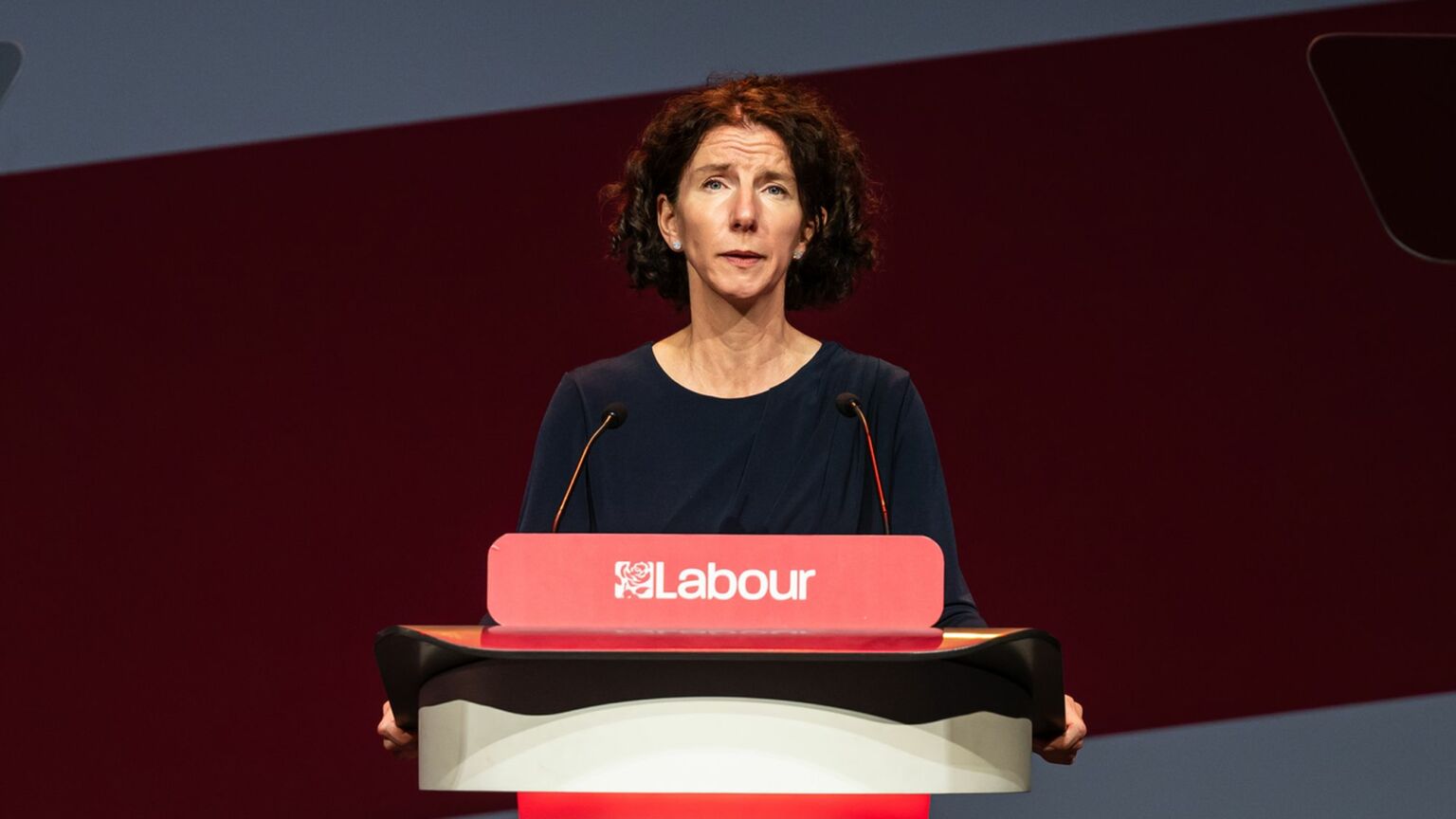Labour’s Islamic blasphemy law
Outlawing ‘Islamophobia’ would turn criticism of Islamic extremism into a crime.

The Tories have suspended Lee Anderson for his daft comments last week about London mayor Sadiq Khan being ‘controlled’ by Islamists. UK prime minister Rishi Sunak weighed in earlier today to say that Anderson’s assertions were ‘wrong’ and ‘not acceptable’.
Crucially, Tory higher-ups have not called the comments ‘Islamophobic’. And this reluctance to use the magic I-word has been pounced on by Labour. ‘Why are senior Conservatives finding it so hard to call out Islamophobia?’, asked shadow equalities minister Anneliese Dodds. ‘Perhaps because the Conservatives still refuse to adopt the definition used by every other major political party in Britain.’
It’s true that the Tories are alone on this. In 2018, the All Party Parliamentary Group (APPG) on British Muslims defined ‘Islamophobia’ very broadly as a ‘type of racism that targets expressions of Muslimness or perceived Muslimness’. Labour, the Lib Dems, Plaid Cymru and the mayor of London all subsequently adopted the definition. But after much deliberation, the Tory government announced in May 2019 that it would not be following suit.
Dodds and many others among our political and cultural elites clearly think that this is some sort of gotcha. That this is proof of the government’s ‘structural Islamophobia’, as the Muslim Council of Britain put it over the weekend. But it’s not. The Tories’ refusal to embrace the idea of ‘Islamophobia’ is actually one of the few things they deserve credit for.
Make no mistake, ‘Islamophobia’ is an inherently dangerous concept. The term was first coined by the Runnymede Trust in 1997 to describe an ‘unfounded hostility towards Islam’. Since then, the idea of Islamophobia has done virtually nothing to tackle instances of anti-Muslim hatred. But it has served as a way to impede and restrict freedom of thought and speech. It acts, effectively, as a form of Islamic blasphemy law.
Promoted by assorted NGOs, politicians, journalists and indeed Islamists themselves over the past few decades, the idea of Islamophobia has exerted an ever more stifling grip over public life in the UK. It has served to protect reactionary Islamic practices from challenge and, increasingly, to insulate the tyrannical theocratic creed of Islamism from any sort of criticism.
As the National Secular Society pointed out a few years ago, the charge of Islamophobia has had a chilling effect on public debate. Liberal and secular Muslims have been labelled ‘Islamophobes’ for voicing opposition to Muslim clerics on issues such as women’s rights and gender segregation. Gay-rights campaigners have been branded ‘Islamophobic’ for standing up to Islamists’ rampant homophobia. And just about anyone condemning Islamist terrorism is today deemed an Islamophobe.
The charge of Islamophobia silences criticism from the left just as much as from the right. In 2015, Iranian-born dissenter and feminist Maryam Namazie was No Platformed from UK campuses for challenging Islamic conservatism. In 2016, Nick Lowles, the director of anti-racism campaign group Hope Not Hate, was disinvited from a National Union of Students event for daring to ‘condemn Islamist extremism’.
The 2018 APPG definition of Islamophobia is the culmination of two decades worth of Islamocensorship. Damning criticism of ‘expressions of Muslimness or perceived Muslimness’ as racism, it potentially outlaws everything from opposition to Iran’s mandatory hijab law to criticism of the theocratic terror of the Islamic State as ‘Islamophobic’. The APPG even called explicitly for ‘appropriate limits to free speech’ and for the policing and regulation of matters ‘far beyond what can be captured as criminal acts’.
Since the APPG issued its definition of Islamophobia in 2018, and most of the UK’s party-political establishment then adopted it, Islamocensorship has been further emboldened. We’ve seen a film pulled from cinemas across the UK for promoting the Shia interpretation of Islam. We’ve seen a teacher in Batley forced into hiding for showing a cartoon of Muhammad during a religious-studies class. And we’ve seen an autistic schoolboy in Wakefield hauled before local clerics for a dressing down, after he lightly scuffed a Koran.
An informal regime of Islamocensorship has now consolidated and justified itself in the UK in the name of combating ‘Islamophobia’. Rather than challenge this constriction of thought and speech, Labour is cheering it on. Its embrace of the APPG definition of Islamophobia – which would likely be introduced into law if and when it enters government – is far more concerning than the stupid things Lee Anderson has said. It threatens to turn criticism of Islamism into a crime. It would represent an astonishing capitulation to theocratic extremists.
Tim Black is a spiked columnist.
Picture by: Getty.
To enquire about republishing spiked’s content, a right to reply or to request a correction, please contact the managing editor, Viv Regan.










Comments
Want to join the conversation?
Only spiked supporters and patrons, who donate regularly to us, can comment on our articles.